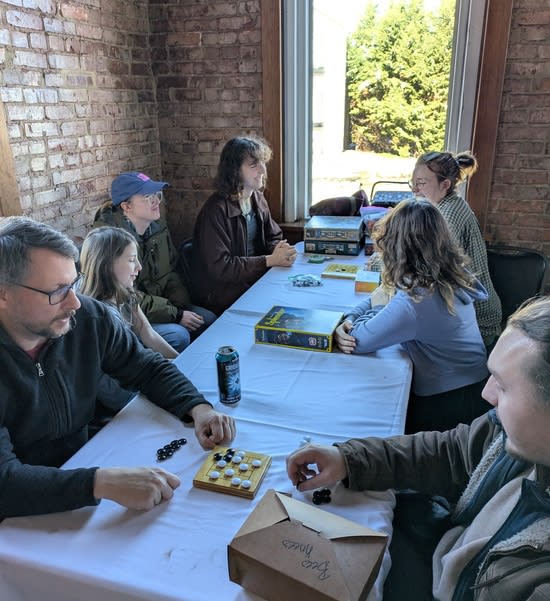Published on January 14, 2025 3:30 AM GMT
There are lots of ways to categorize board games, but an axis I care alot about is accessibility: how much of an investment is learning agame? RaceFor the Galaxy and PowerGrid are great games, but I'd expect to spend 15+ min teachingbefore we could play. Set or Anomia, though, Icould explain in a minute or two.
Games you can teach quickly are great in a casual context: peoplewander over, and you can get them playing right away. And one of myfavorite casual games is Go.
If you know Go this is a surprising claim: we're talking about one ofthe deepest board games humans (and others?)play. It's famously complex, with two decades separating computerssurpassing humans inchess and then inGo. And yet, if you shrink the board towhere a game just takes a few minutes, it's a great party game:
not a Go meetup; the board games table at a contradance weekendThe rules of Go are verysimple, and it is only their interaction on a large board thatgives Go it's depth. I can get someone playing on a 5x5 in a coupleminutes, and we'll usually play a few quick games in a row. At thisscale people can draw strongly on their general purpose reasoningwhile they're building up their intuitive sense. Then I'llget them playing someone else who's never played before. Once blackstarts consistently winning on 5x5, we go to 7x7. And if someoneshows up who already knows how to play we can do 9x9.
The game does feel different at the smaller scale, with more focus oncapturing and less on territory, but the learning curve isfantastically welcoming. I think the broader Go community has beenmaking a serious mistake in dismissing sizes below 9x9 as not worthplaying.
Discuss


